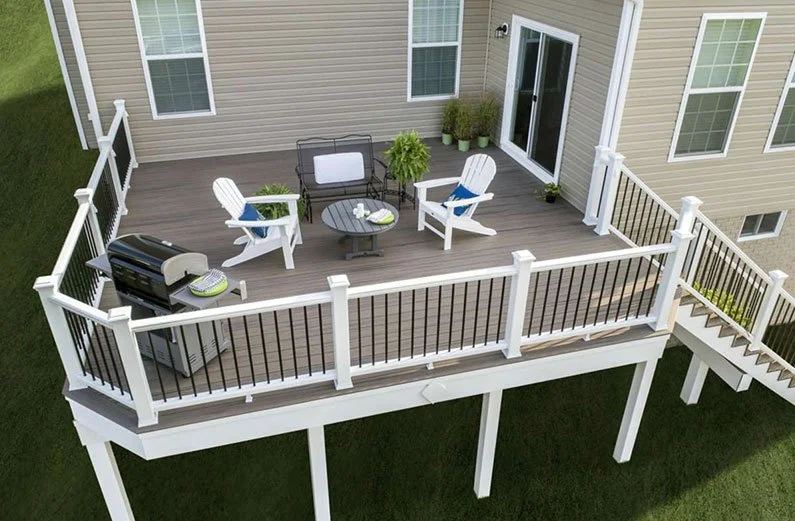An in Depth Look at Deck Inspections.
Decks are a popular addition to homes, providing a functional and aesthetically pleasing outdoor space for homeowners to relax and entertain guests. However, like any component of a home, decks can develop problems over time, and these issues can potentially lead to a home sale falling through if not addressed. In this article, we'll take an in-depth look at decks, exploring whether they're a hot inspection item that can cause a home sale to fail, and examining the common problems that home inspectors look for when evaluating a deck.
Are decks a hot inspection item?
In short, yes - decks are a common item that home inspectors will examine during a home inspection. The reason for this is that decks can pose a safety risk if they're not structurally sound, and it's important for buyers to know that the deck on their prospective home is in good condition. Additionally, decks can be costly to repair or replace, and buyers want to be aware of any potential expenses they may incur down the line.
Common problems found with decks during a home inspection
1. Rotting or deteriorating wood: Over time, the wood used to construct a deck can deteriorate due to exposure to the elements. This can lead to rotting or soft spots, which compromise the structural integrity of the deck. Home inspectors will look for signs of rot or deterioration, such as warped or cracked boards, and may use a probe to test the wood's firmness.
2. Inadequate support: Decks need to be supported by a proper foundation, such as concrete footings or posts. If the deck isn't properly supported, it can shift or collapse, posing a safety risk. Home inspectors will examine the support structure of the deck, looking for signs of damage or improper installation.
3. Loose or missing fasteners: Decks are held together by a series of fasteners, such as nails or screws. Over time, these fasteners can become loose or rusted, compromising the stability of the deck. Home inspectors will examine the fasteners, looking for signs of corrosion or missing screws/nails.
4. Railing problems: Decks with elevated surfaces require a railing to prevent falls. Home inspectors will examine the railing, looking for signs of damage or improper installation. For example, a railing that's too low or missing balusters can pose a safety risk.
5. Waterproofing problems: Decks are exposed to moisture, which can lead to rot and deterioration. Proper waterproofing is crucial to ensure the longevity of a deck. Home inspectors will look for signs of water damage, such as warped or soft wood, and may test the effectiveness of the waterproofing by spraying water on the deck's surface.
Conclusion
Decks are a popular feature of many homes, but they can also pose a safety risk if not properly maintained. As a result, they're a hot inspection item that home inspectors will examine during a home inspection. Common problems that inspectors look for include rotting or deteriorating wood, inadequate support, loose or missing fasteners, railing problems, and waterproofing issues. By addressing these problems before putting a home on the market, sellers can increase the likelihood of a successful sale and avoid any unexpected expenses down the line.

